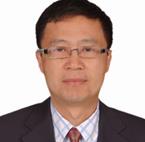Invited Speaker---Dr. Dong Liang

Dr. Dong Liang
Professor, Department of Mathematics and Statistics, York University, Canada
Dr. Dong Liang is a Full Professor at the Department of Mathematics and Statistics, York University, Canada. His research areas include Numerical Analysis for Partial Differential Equations and Scientific Computing; Environmental Computation and Energy Simulation; Computational Methods for Fluid Dynamics in Porous Media; Computational Electromagnetics and Nonlinear wave propagation. He has obtained many important research results in these areas and has published more than 120 journal papers including in J. Comput. Phys.; SIAM J. Numer. Anal.; SIAM J. Sci. Comput.; Numer. Math.; IMA J. Numer. Anal.; IMA. J. Appl. Math.; J. Aero. Sci.; Atmos. Environ.; J. Sci. Comput.; J. Comput. Appl. Math., J. Comput. Sci.; J. Nonlinear Sci.; and Atmos. Res.; etc. His researches were supported by grants received from NSERC of Canada, MITACS of Canada and China “973” Project. He was awarded NSERC’s DAS in 2012.
Speech Title: The Efficient Numerical Method for Groundwater Environmental Computation
Abstract: Groundwater environment computation is an important and difficult problem. Mathematical models describing multicomponent pollution flows in porous media are the time-dependent and coupled nonlinear partial differential equations. Due to the complexity, the nonlinearity, and the large scale and long term of simulation and protection, it is important to develop efficient numerical methods for solving multicomponent pollution flows in parallel computing. In this talk, we will present a new conservative method that we develop for computing nonlinear multicomponent contamination flows in porous media over multiple non-overlapping domain decomposition. The significant feature of our scheme is that while it keeps the excellent advantages of the non-overlapping domain decomposition and the splitting technique, the developed algorithm conserves mass over the whole domain. Numerical experiments show the excellent performance of our proposed conservative method for computing nonlinear multicomponent pollution flows in groundwater environmental computation.



